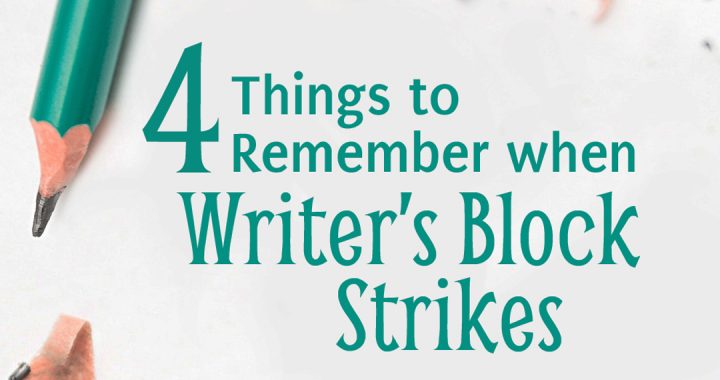Sometimes, when you hit a roadblock with your writing, there’s something legitimately wrong with the story. Other times, the best idea is to push through it.
So, here are four pieces of advice I wish someone had told me when I was a newer writer. I have to keep telling myself this advice when writer’s block rears its ugly, multiple dragonish heads or starts drawing you into an evil whirlpool of doubt and dismay.
1) There are good things about your story.
Sometimes you forget the reason you started this story. Why it excites you. What’s absolutely brilliant about the concept. Why you love the characters so much. Why your planet of cloud-eating monsters is going to be revolutionary in the fantasy genre.
It helps me to make a list of all the things that I like about my story. When I read it later, the list usually gives me a morale boost, and it’s a good way of checking whether the story is on track. Try making one for your current work in progress. Read it (and add to it!) every so often to remind yourself why you’re writing this story.
2) You will get excited about the project again.
If you’re not excited about your story at this very moment, keep working on it anyway. Yes, this is hard to do. When I don’t like a story, my first instinct is to frantically close the text document, try to forget about the burning mess that is my poor story, and go eat some ice cream.
Often, I get writer’s block when I haven’t written anything in a while. It takes time to get myself into the groove of putting out words again. Obviously, consistent writing habits would forestall this problem.
But if you do take a hiatus, or you hit the midpoint of a novel and all your insecurities creep in, you may not be able to pick up where you left off. That’s normal. Keep working, even if it feels like wading through the Midgewater Marshes, and you’ll regain some of your enthusiasm.
3) It’s okay to work on a few projects at once.
Make progress whatever way you can. If a particular story is giving you grief, sometimes it’s helpful to keep writing… but switch to a different project for a bit.
I’ve actually had success pulling up two different stories on my computer at once and switching between them. When I get stuck on a sentence, I go to the other document. And then when I want to quit on that one because I’ve found a plot hole, I switch back. Maybe that’s an extreme example, but it’s okay to work on different stories in a single week.
4) If it’s fun all the time, you’re doing it wrong.
Writing is work. Most of the time, it’s fun; that’s why we’re writers. Sometimes writing is easy, too.
But in any job, you’re not going to get fuzzy feelings and ideas magically popping into your head all the time. There are some parts of writing that are an absolute slog. Some people hate the first draft, or the second, or revising, or marketing, or actually publishing the thing.
But the writers who only work when it’s fun don’t finish projects. Writing is a hobby for them, and that’s fine. But if you want to step up your game, you have to do the stuff that’s not fun, and you have to do it whenever it needs to be done. You’ll be happy when it’s finished.
Hope that helps if you’ve been having a touch of writer’s block lately. Or writer’s paralysis… a worse form of writer’s block where you can’t lift your hand to write the first word because of a crippling sense of terror and inadequacy. Ever had that? If you have, let me know. There’s nothing more fun than telling crazy stories about writing experiences.
Like what you read? Take a minute and share it with your friends or connect with me online!

Good tips, especially #2 and #4. Another thing I find helpful is writing a story out of order. For example, I tend to get stuck writing chapter openings. So, sometimes I’ll start work in the middle of a chapter. Or, if I find myself running out of steam on a particular plotline, I’ll switch to working on another (easier to do when you’re writing a tome). 🙂
Writing on paper can also help. The sheet of paper fills up as I write (unlike the bottomless Scrivener or Word Doc) and I don’t find myself going back and tweaking every single sentence, trying to get it “perfect”. Random notes get written in the margins or the top of the page and are attended to later.
Another advantage of writing on paper – I think I tend to focus better on my work. I actually spend more time writing vs. researching random topics that pertain to whatever I’m working on (like gymnastics or medieval cuisine or castle designs…), or taking frequent breaks to switch up the music I’m listening to.
Pingback: So, about that Book… :: Amber J Hill